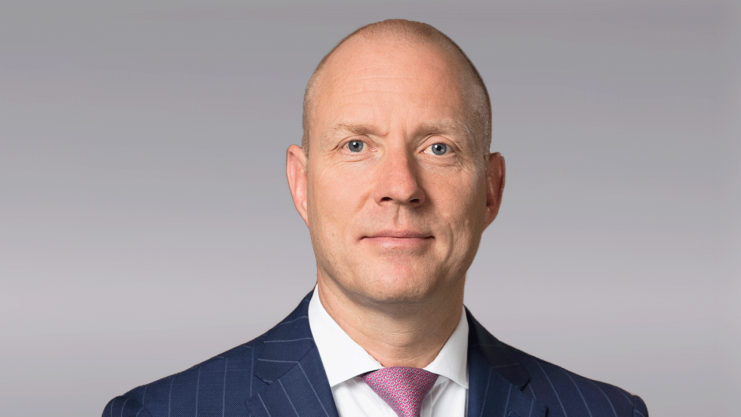Saturday Sitdown: Credit Suisse’s global investment boss on the dawn of a new world order

The Russian invasion of Ukraine has accentuated geo-political risks, further fueling volatility on financial markets and unsettling investors.
These developments mark a clear shift to a new world order, Michael Strobaek, Credit Suisse’s global chief investment officer, told City A.M. in an exclusive interview.
“This new world order will make risk management as well as investing according to strong and systematic processes even more crucial,” said Strobaek, who joined the Swiss banking giant nearly a decade ago.
The tensions over Ukraine between Russia and the West have rapidly escalated over the last few days, resulting in a full invasion of Ukraine.
With these developments, “we are now firmly in the “Invasion and open conflict” scenario,” said the former head of investment management at UBS Wealth Management.
Strobaek revealed that he told clients earlier this month that in case this scenario materialized, equity markets would fall further, European equity and credit markets would underperform and Russian assets would see a very sharp sell-off across the board.
Strobaek also anticipated that oil and gas prices would see a significant price spike and that long-dated US Treasuries would rally. All of this has materialized very swiftly and markets continue to be on the move.
“I believe that Russia’s invasion of Ukraine marks nothing less than a shift away from the largely US/Western-dominated world order that has prevailed since the fall of the Berlin Wall,.”
Michael Strobaek, Credit Suisse’s global chief investment officer
“Russian President Vladimir Putin intends to reposition Russia as a powerful nation whose strength rests on its energy and commodity resources as well as its military.”
“This is likely to have significant repercussions for the security arrangements in Europe and globally. Other powers such as China are likely to watch closely how this conflict evolves and how the West and NATO react. Indeed, we are now moving to a new multi-polar world,” Strobaek added.
This development has already been underway for several years and one can see that in efforts to break the internet apart into individual blocks, for instance.
Strobeaek pointed out that China has its own web and its own solutions for social media and e-commerce, and the same goes for Russia.
“This trend is now likely to be accelerated and spread to other areas like financial systems and ease of travel. We are also likely to see increased spending on security and cybersecurity all around the world.”
Managing risks
At the moment, the situation is very fluid and markets are very volatile.
“The current market weakness and risk-off environment may extend further. However, markets can also violently swing back and we do not want to take any over or underweight in equities during this volatile time,” Strobaek stressed.
“For now, our key focus remains on risk management. We already started to de-risk portfolios by moving the tactical equity allocation from overweight to neutral in late December, precisely because we thought the first few weeks of 2022 could be volatile.”
Moreover, Credit Suisse remains underweight fixed income, mostly driven by its view that the return outlook for government bonds is challenging given high inflation and rising interest rates, Strobaek explained.
“We hold a significant allocation to alternative investments and currently are overweight cash – both of which help to keep portfolio risks in check in an environment where both equity and bond markets struggle,” he added.
Geopolitical developments play a lasting role for financial markets in as far as they change this economic outlook for good and thus the ability of companies to operate and add value.
“As long as global economic growth remains solid and corporate earnings are strong, we think markets have the potential to recover despite the geopolitical factors.”
Michael Strobaek, Credit Suisse’s global chief investment officer
“For now, this expectation remains unchanged. We hence keep portfolios positioned for above-trend growth with elevated inflation and central bank tightening,” Strobaek said.
Long-term perspective
Taking a long-term perspective, the emergence of a multipolar world probably means that we will have divergent economic developments and policy making in the different regions.
Supply chains are likely to become more regional, leading to elevated inflation for longer as some of the efficiency gains of globalization are reversed.
“I also think that this new world order means that we might have higher risk premia in regional markets, depending on the fundamental developments there.”
That means higher volatility, but also increased expected returns for certain asset classes than what we had before, Strobaek explained.
“Active investing will become more important given the potential for shifting economic, political and social developments in individual regions,” he concluded.